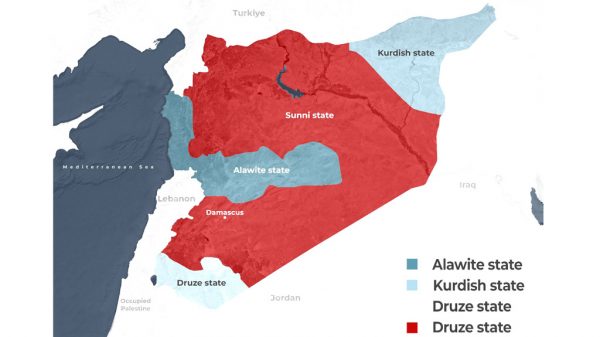AI in national security and reforms

Alvee ST Ruhab:
ARTIFICIAL intelligence, with its transformation, is swiftly dominating the globe. It compels nations to reconsider forthcoming challenges in every sector. In fact, under the forward-thinking leadership of Dr Muhammad Yunus’s interim government, Bangladesh now stands at the crossroads through which AI can be utilised not only for the reinforcement of national security but also for the acceleration of comprehensive reforms across the nation. This current paper discusses the emerging evolution of AI in Bangladesh, its potential applications in the domain of national security, as well as how it can be strategically employed to reshape the country for a brighter and more secure future.
AI as a catalyst for governance and administration: For the first time in history, AI permits governments to amplify the efficiency, transparency, and responsiveness of their systems. Dr Yunus’s caretaker government can leverage this power of AI-driven data analytics to speed up decision-making at all levels of governance. Policy grounded on such an approach will synthesise vast amounts of information into actionable insights that enable policymakers not only to make informed decisions but also to adjust to the constantly shifting needs of the populace.
Moving forward, the application of artificial intelligence will ensure resource optimisation and proper public project resource distribution to make investments in infrastructure, education, and health efficient yet equitable. The government will be able to anticipate future needs and challenges using predictive analytics, further ensuring proactive rather than reactive governance. This will also lead to reduced administrative bottlenecks and enhance service delivery, fostering a more citizen-centric approach to governance.
AI-driven economic and social reforms: The potential of AI extends far beyond governance to serve as a driving force for significant economic and social reforms. AI integration would bring substantial changes to the economy of Bangladesh, which is thriving in the agriculture, manufacturing, and services sectors. The use of AI-powered precision farming techniques will enhance crop optimisation, leading to a reduction in waste and an increase in profitability for the farmers involved. Similarly, in the manufacturing sector, AI can further streamline production processes, improve quality control and reduce operating costs — thus making products from Bangladesh more competitive in global markets.
AI in social sectors such as education and health is also poised to bring about transformational changes. Personalised learning through AI platforms will provide students with education tailored to their capacity and pace. In the field of health, AI will assist in diagnosing diseases, maintaining patient records, and even predicting health trends to ensure accessible medical services and improved outcomes. By implementing AI in such sectors, Dr Yunus’s government will address long-standing social issues, ensuring equitable opportunities for all citizens while promoting prosperity.
Strengthening national security with AI: The convergence of artificial intelligence and national security is one of the most critical areas for Bangladesh in its quest to safeguard sovereignty and maintain internal stability. With the ability to process and analyse vast amounts of data in real-time, AI is seen as perhaps one of the most valuable tools in crime detection, counterterrorism, and counterintelligence.
This is where AI truly steps in to potentially revolutionise policing: in the detection of crimes — to essentially predict a crime even before it occurs. By analysing data retrieved from social media reports, surveillance cameras, and communication networks, AI can detect patterns in activities and suspicious behaviour in the activities it monitors, thus assisting police in a timely manner. Additionally, through enhanced forensic tools powered by AI, investigations are expedited — for example, evidence is analysed quickly to identify suspects and their connections to criminal networks.
Counter-terrorism and the role of AI in pre-empting threats: Another major domain in which AI will have a profound impact is counter-terrorism. Terrorism, whether foreign or domestic, demands constant vigilance and the ability to act swiftly in the face of imminent danger. AI can significantly aid in both these aspects by tracking activities and communications in cyberspace, leading to the early identification of any signs of radicalisation and potential threats before they materialize. Furthermore, AI can also be used to map and analyse terrorist networks, providing intelligence agencies with the information needed to dismantle these networks and prevent such attacks.
Counterintelligence and mitigating external threats: Strategic use of AI in counterintelligence is therefore crucial in defending Bangladesh from any form of espionage or intelligence gathering by adversarial agencies. AI-enabled surveillance systems can closely monitor communications, detecting possible anomalies that may indicate espionage activities. For instance, AI algorithms might intercept communications and analyse them for potential coded messages, flagging suspicious patterns for further investigation. This is how AI can both secure sensitive information and prevent infiltration by foreign operatives by strengthening the capabilities of Bangladesh’s intelligence agencies.
AI-based facial recognition technology is another aspect that could be a boon for national security. It could be highly significant for a country like Bangladesh when deployed at borders, airports and other critical entry points, enhancing the capacity for identifying and tracking persons of interest to prevent illegal activities and take appropriate measures against these individuals before they cause harm to the country.
In the modern globalised and interdependent world, cybersecurity is essential to national security. Bangladesh must, therefore, be adequately defended against cyber threats, which are becoming increasingly sophisticated and otherwise difficult to detect using conventional methods. Real-time network monitoring by AI-based cybersecurity systems is beneficial in identifying and responding to potential threats before disasters occur. AI can protect Bangladesh’s critical infrastructure, government data and communication networks from being compromised by hostile actors through its automation of detection and mitigation against cyberattacks.
Implementing AI as a strategic blueprint: AI in Bangladesh will require a comprehensive and strategic approach. Capacity building should be the first step. The government should invest in education and train skilled individuals capable of managing and advancing AI technologies. Collaboration with international experts and institutions will expedite the process, enabling Bangladesh to keep pace with the rest of the world on AI issues.
Another crucial factor is infrastructure development. World-class computing resources, along with advanced AI research and development centres, will be indispensable for innovation. These centres can focus on developing AI solutions tailored to function effectively under the unique challenges and conditions of Bangladesh.
A robust policy and regulatory environment is also necessary to guide the ethical application of AI. It should address concerns related to privacy, civil liberties, and other potential misuse of AI technologies. In this regard, the government will need to establish clear guidelines and standards to ensure that AI is used responsibly for the greater good.
International collaboration in AI development will be highly beneficial for Bangladesh. This will allow the country to share knowledge, resources, and expertise with other nations and international organisations while also gaining access to the latest AI technologies and insights. Such collaborations will enable Bangladesh to make significant strides in its AI journey, positioning it as a global leader in this field.
Finally, public-private partnerships should drive innovation in AI. The private sector can bring technical expertise, investment and, most importantly, a market-driven approach to AI. The government can support this process through appropriate policies, infrastructure and regulations. These partnerships would accelerate the deployment of AI solutions across various functional areas and sectors, permeating all corners of society.
A Vision for the Future: AI-Driven Transformation: The promising future for Bangladesh lies in AI as the central driving force, facilitating reforms not only in national security but also in broader contexts. Governance underpinned by AI in all spheres will enhance the security of Bangladesh, improve the economy, and create a just and equitable society.
With continued investment in AI development, Bangladesh is poised to emerge as a leading player on the global stage. The strategic deployment of AI will not only secure the nation but also propel the country towards its vision of becoming a technologically advanced nation by 2030. With AI at the forefront, Bangladesh is set to transform into a model for other developing nations to follow, demonstrating how technology can be harnessed for societal advancement.
Alvee ST Ruhab is an engineer and political analyst.





























Leave a Reply